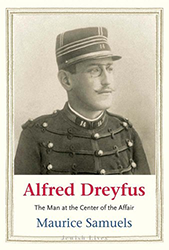The year was 1832 and the French royal family was in exile, driven out by yet another revolution. From a drafty Scottish castle, the duchesse de Berry — the mother of the eleven-year-old heir to the throne — hatched a plot to restore the Bourbon dynasty. For months, she commanded a guerilla army and evaded capture by disguising herself as a man. But soon she was betrayed by her trusted advisor, Simon Deutz, the son of France’s Chief Rabbi. The betrayal became a cause célèbre for Bourbon loyalists and ignited a firestorm of hate against France’s Jews. By blaming an entire people for the actions of a single man, the duchess’s supporters set the terms for the century of antisemitism that followed. Brimming with intrigue and lush detail, The Betrayal of the Duchess is the riveting story of a high-spirited woman, the charming but volatile young man who double-crossed her, and the birth of one of the modern world’s most deadly forms of hatred.

Nonfiction
The Betrayal of the Duchess: The Scandal That Unmade the Bourbon Monarchy and Made France Modern
September 1, 2019
Discussion Questions
Courtesy of Maurice Samuels
- How did the Revolution of 1789 change France? How did these changes affect the duchess and her family? How did they affect Simon Deutz and his family? How did they affect Jews in general?
- How did the modernization of France fuel antisemitism? Why did Jews become scapegoats for those who opposed modernization?
- What led Deutz to convert to Catholicism? How did his family background and personal psychology drive his actions?
- Did Deutz have any redeeming features? Do you feel sympathy for him?
- Was the duchess a smart and courageous heroine? Or was she an extreme right-wing zealot fighting against democracy? Can we admire her even if we don’t agree with her politics? Why were so many people devoted to her cause?
- What was the duchess fighting for? Were her motivations more personal or political?
- On the one hand, the duchess defended traditional and conservative family values. But on the other, she defied gender stereotypes. Can we reconcile this contradiction?
- Was Louis-Philippe fair to the duchess? What could or should he have done differently?
- Why did the French Jewish community turn on the Deutz family? Were they right to do so? Did you feel sympathy for Rabbi Deutz (the father)? Should he have denounced his son’s actions?
- The Bourbons never did recapture the French throne. What were the reasons for this failure? What mistakes do you think the duchess and her associates made?
- Do you believe that Simon Deutz died in New Orleans? What other possible endings can you imagine for him?
- How did the story of the betrayal live on in French national memory? Why did it fade away after WWII?
- How does this case help us understand the origin of modern antisemitism? How can it help us understand antisemitism today?

Jewish literature inspires, enriches, and educates the community.
Help support the Jewish Book Council.


